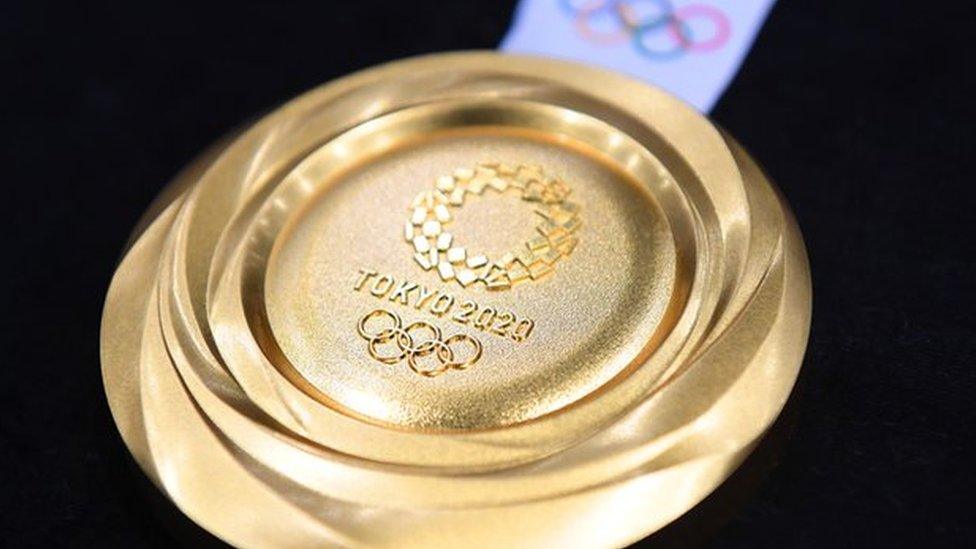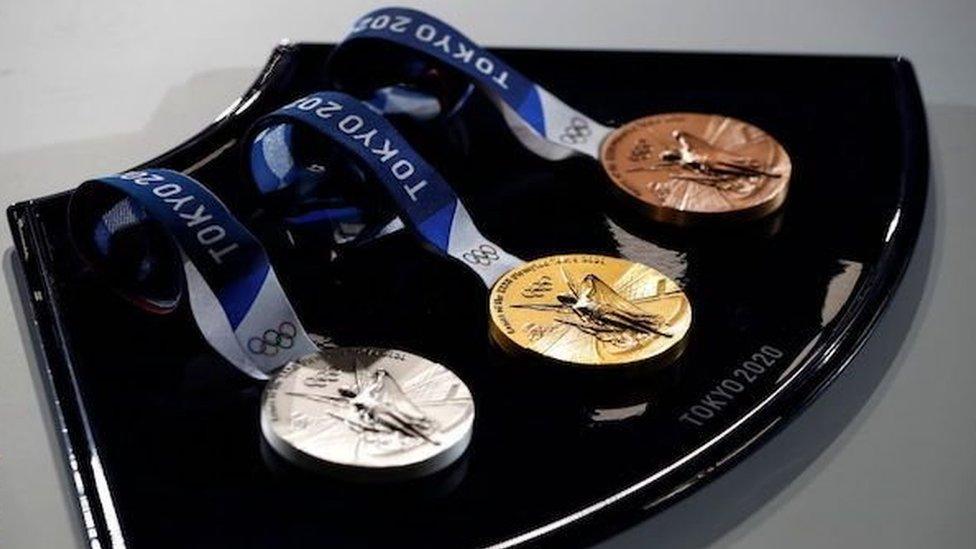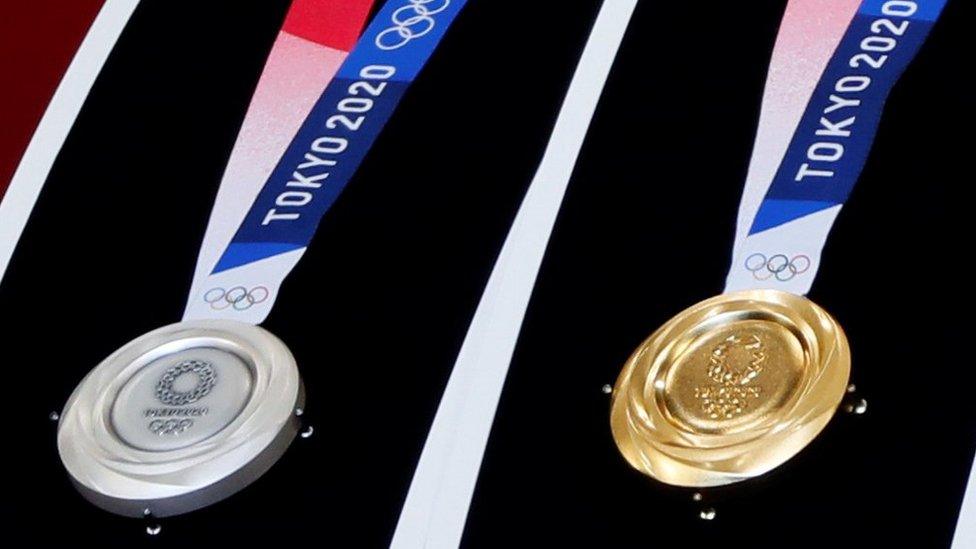Tokyo 2020: How much are the Olympic medals really worth?
- Published
- comments

To win an Olympic medal, athletes put in hard work, sweat, tears and lots of sacrifice... but if they manage to get their hands on a precious medal, how much is it actually worth?
Well, the answer maybe surprising, and, probably, not as much as you might think.
And, is a gold medal actually made out of gold? Teaser, you might be in for another surprise!
Every Olympics the design and manufacturing of the medals are slightly different, so read our guide to find out all about the medal for the Tokyo Olympic Games!

The Tokyo 2020 medals have been made from recycled small electronic devices, such as mobile phones
The medals for the Tokyo Olympics are made from material recycled from electronic devices donated by the people of Japan.
But, they still do have some precious material in them!
So, is the gold medal actually gold? Nope! Olympic gold medals are required to be made from at least 92.5% silver, and must contain a minimum of six grams of gold.
According to one expert, the gold medal being presented at this year's Olympic games is worth around £540.
That can sound like a lot of money but is nowhere near even a fraction of the amount of time, effort and money the Olympians have invested over their careers to get to this level of competition.

Richard Gladdle of Baldwin's Auctions says this is the bullion value - how much the basic metal is actually worth.
The silver that makes up the silver medal would be worth about £297 if you melted one down.
Bronze medals are made of an alloy of copper and zinc, and are worth almost nothing - less than £5 each!
But, this doesn't take in the significance of the medals themselves - it's likely these numbers will not matter one jot to the proud Olympians who have sealed their place in the history books with their wins!
In the past, Olympic medals were actually made of pure gold until 1912, but after World War One, countries swapped to making silver medals with a layer of gold on top.
Often in photos you will see athletes biting their gold medals. This is because gold is often softer than other metals, so biting down on it was a way to check its authenticity.
The tradition has led to Tokyo 2020 organisers jokingly reminding athletes that their 'medals are not edible'.

Thomas Pidcock bites his gold medal after taking gold at the Izu Mountain Bike Course
But, the real value of the medal is often shown by the money offered when they come up for sale.
They are not sold very often, but when one is occasionally offered at auction they can be sold for hundreds of thousands of pounds.
Gladdle said the winner of the medal also makes a huge difference to the price when they come up at auction, with people much more interested in getting their hands on something so significant to their Olympic hero than simply owning an Olympic gold medal itself.
Are you surprised by the value of the Olympic medals? Would you like to get your hands on one yourself one day? Let us know in the comments.
- Published9 August 2021
- Published29 July 2021


